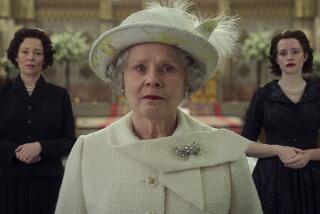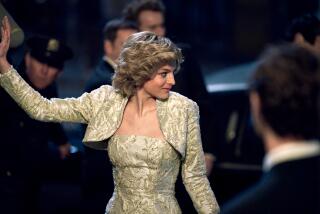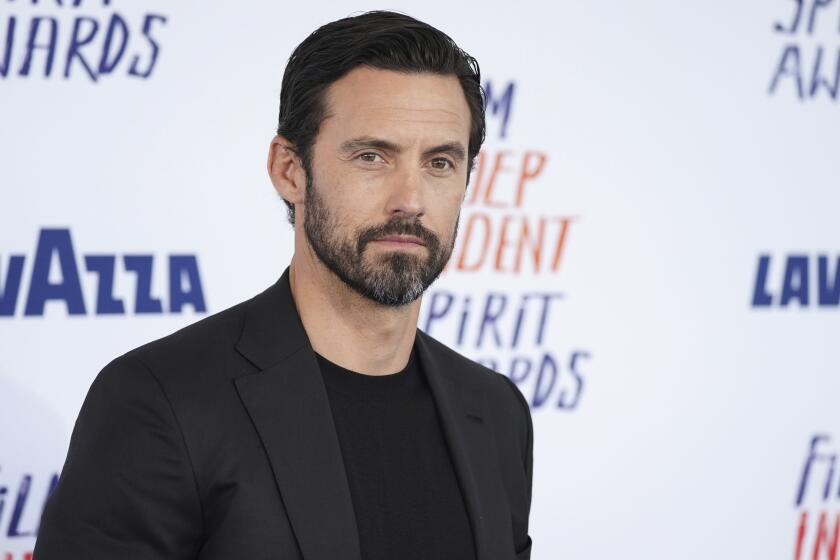All the Elements of Drama
- Share via
Some news stories are memorable, burned into our consciousness, largely because they directly affect many lives and remind us how vulnerable we all are--earthquakes, wars, air disasters, fires and floods. The power of less sweeping stories, such as the death of Diana, Princess of Wales, is partly the result of saturation coverage, but also because such a calamity feels as if it comes from the realm of fiction.
Such stories move in on us, seem to dominate everything and then move on, leaving only diminishing memory. We sit gaping at our TV screens hoping for insight, or at least news, and at the same time wondering why in the world we are doing it. Then, soon enough, we and the world are on to other things. A friend of mine compared it to a broken arm--while you’re in the cast you think of little else. Twenty minutes after the cast is off, you can hardly recall the feeling.
Why do we get so swept up in these stories? Certainly they seem to have all the aspects of elemental drama. In the case of Diana, it’s the story of an unhappy princess just starting to find her place in the world. Added to that is the sadness of her children, now left to the care of their less than engaging father.
Hollywood is built on the belief that such a story is always compelling. It even sounds like a script, and not only in Los Angeles, where anything that goes boom can sound like a script.
Yet there have been other deaths, other sad tales that have not gripped us with anything like the power of Diana’s demise. And it’s not just because she was more famous than most. It’s a combination of circumstances that tells us something important about, in Trollope’s perennially useful phrase, How We Live Now.
First is technology. An event occurs in central Paris and, within the hour, the details are known throughout the electronic world. We’re in on this thing right from the start. We have a stake in the tale. The fact that the story is so maddeningly incomplete makes it all the more compelling. Constant updates are hurled like fireballs. Over the first few hours, most of us will have occasion to glance at a TV set, a computer monitor, hear a radio or speak to a friend on the telephone. Tantalizing details will float onto our personal radar screens whether we want them to or not. Then we’re hooked, involved.
With the availability of live coverage of unfolding stories, people have come to distrust edited, considered reports in favor of what they can see with their own eyes. The result, in this case, is hours on end of raw footage of that Paris tunnel. The camera peers into the dark while a member of the commentariat is not much more illuminating: “That’s the tunnel there. She died in there.” Then you can change channels and hear it again, perhaps with some minor variation, or a word or two about French traffic laws.
Viewers want footage unmediated and untainted by reporting and editing because they feel that way no one can trick them or spin the story in a dishonest direction. People simply don’t trust the reporting. Add to that the morbid fascination at the possibility of a celebrity death and the result is we wind up spending a lot of time peering into a black tunnel.
The story quickly becomes, in local terms, like a fender-bender on the 101 that stops traffic from Highland Avenue to Alvarado Street. It’s the rare person who can drive by without slowing down to see what’s happened. News of the princess’ accident might not be known in the lesser regions of, say, Uttar Pradesh, but that doesn’t mean the citizens wouldn’t care. It’s a matter of time until they’re wired and technology can ignite their interest. A few generations ago, our interest wouldn’t have been any the less, but there wasn’t routine live transmission from the scene. People expected to wait to hear the details only after the reporters had sorted them out.
The second large issue about the story, if not the death itself, was the way everyone, including me, was quick to lay the blame at the feet of the despised paparazzi. Those rude photographers seemed to stand for the media at its worst. “They hounded her to death” was an idea that so fit the public mood that even after it was shot full of holes people still believed it.
Since the end of the Cold War, and the loss of communism as the West’s designated villain, any number of minorities have been worried that they will be the chosen replacements--gays, Jews and telemarketers come to mind. I don’t think any single group will bear the burden, but the media has been a candidate for a while. We’re forever accusing the media of obsessive interest in bad news. As most of us partake of the media, it’s an idea that, whether we realize it or not, doesn’t quite fly.
But the paparazzi? Who better? They even call themselves “rats,” and they worked overtime to provoke the princess. They goaded her into what they called “loon attacks,” in the hope of getting a photograph of her face twisted with anger and distress. The most successful one (in their terms) was when she shouted at them, “You make my life hell! You make my life hell.”
At his sister’s funeral, when Diana’s brother, Earl Spencer (to Americans, “Earl” sounded like his first name, not his title), stared down the Windsors in a sort of primal family drama and then said, famously, “I always believed the press would kill her in the end,” the guilt and blame seemed sealed.
But this wasn’t a script, and it wasn’t so neatly wrapped up. It turned out that though the paparazzi may have had a hand in it, Diana’s driver was drunk. And even if the paparazzi were behaving rudely and goading her party, does anything justify driving at high speed through a tunnel? Was Diana’s companion ordering the driver--his employee--to drive recklessly? It’s easily imagined, but not yet provable.
An issue that warrants some year-end contemplation is the role of Diana’s beau, Emad Mohammed (Dodi) al Fayed. He seemed like a figure from another era, someone like Porfirio Rubirosa or Aly Khan, a deeply trivial international playboy of fabulous wealth. Dodi had cut a swath through Hollywood, leaving debts and broken hearts, and now he seemed fixed on the greatest romantic prize of all, the mother of a future king of England. If he seemed like a fictional character to us, it was different in England.
The British have always had a complicated relationship with the Egyptians. There’s a vulgar English racism at the core of it. Dodi’s father, Mohammed al Fayed, has paid millions of pounds in English taxes, and yet the nation continues to deny him citizenship. One can’t help but wonder how the Brits would have acted if the senior Al Fayed were Canadian or Australian and had an English-sounding name. Egypt was a part of the empire but never British. The Indians, who lived longer and more fully under the empire, became British enough to allow their overlords to mock them for it. The Egyptians never paid that much attention, even when the British were running things. They knew the British would eventually go home, as indeed they did. The British have never forgiven them for it.
A question that will remain unanswered is just why Americans took to Diana so, in death at least, if not in life. After all, no matter how hard the media plays a story, and this one was relentless, there has to be a hungry audience for it. It was astonishing enough that the British took to this story with such an outpouring of emotion. But she was their princess. It was their story. For us, I think, it’s that, unlike the rest of the royals, Diana seemed like an American.
The irrepressible Fergie, the Duchess of York, seems like an American, too, but of an excessive sort, a kind we recognize but aren’t so crazy about.
After Diana’s marriage was on the rocks, she seemed a step or two away from the better afternoon talk shows. Not Sally Jesse, but Oprah perhaps. It made her an American’s idea of an understandable and, therefore, ideal royal.
More to Read
The complete guide to home viewing
Get Screen Gab for everything about the TV shows and streaming movies everyone’s talking about.
You may occasionally receive promotional content from the Los Angeles Times.






